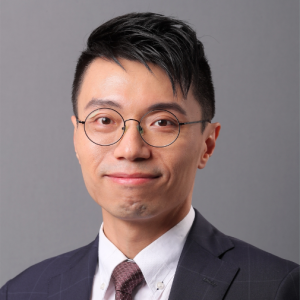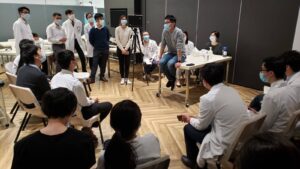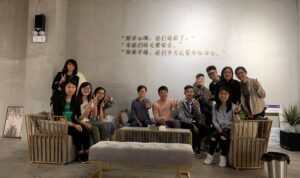e-News
Faculty Teaching Medal 2021
Faculty Teaching Medal 2021
Dr Abraham Wai
Clinical Assistant Professor, Emergency Medicine Unit, Li Ka Shing Faculty of Medicine
 |
What is your main teaching philosophy? It is my mission to prepare my students for the challenges they are going to face in the future. Students should understand health care is undergoing tremendous transformation, in addition to professional knowledge and skills which is fundamental to safe practice. It is necessary to be competent in 21st century skills, which include creativity and innovation, critical thinking and problem solving, communication, collaboration, information management, effective use of technology, career and life skills and cultural awareness, so that they would be successful after their graduation.I believe in experiential learning which engages undergraduate students purposefully in direct experience, focused reflection, and authentic assessment to increase knowledge, develop skills and strategies, clarify values, and apply prior learning. It is a holistic integrative perspective of learning that incorporates perceptions, cognition, experiences, as well as behaviour.What is the most rewarding part of teaching? I am an outcome-oriented teacher. When my Enrichment Year students presented their consultancy report in the government secretariat in rural Yunnan with great success, I am proud of their achievement beyond their position, based on what they learned from pre-clinical classes and service learning in the course.When I found students discussing about the patient, reminding their peers the standard practice and warning about the risks in clinical simulation after deliberate practice and debriefing, I know they have learnt how to learn. They will be safe interns when they join the workforce. It is extremely rewarding to witness how students grow in the process, even though there were ups and downs in the middle. How do you promote teacher-student rapport? What have been your greatest challenges in teaching and how did you overcome them?
|

